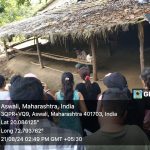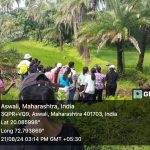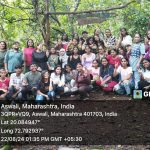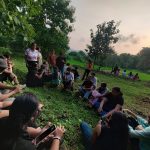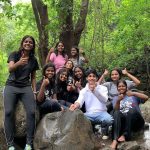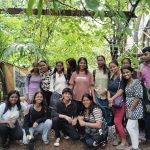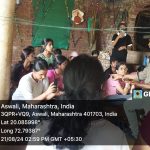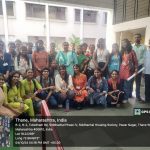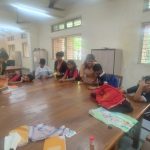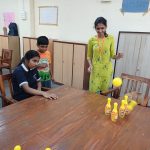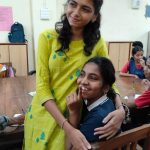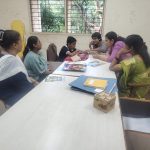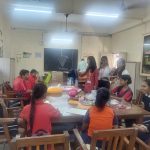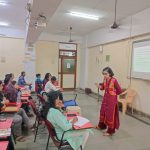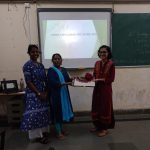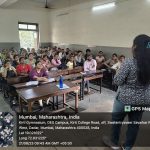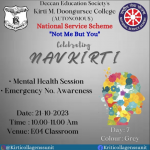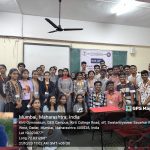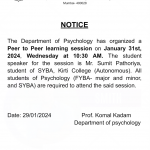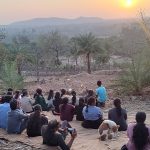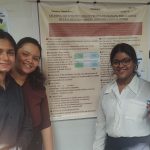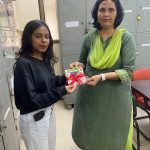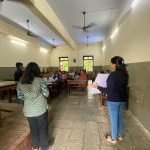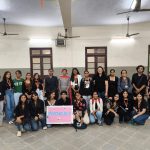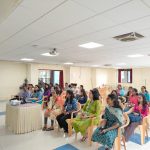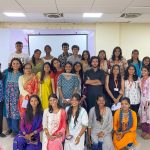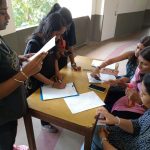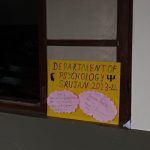Psychology
- ABOUT DEPARTMENT
- DEPARTMENT FEATURES
- COURSE INTRODUCTION
- PROGRAMMES OFFERED
- SYLLABUS
- DEPARTMENT ACTIVITIES
- SUPPORT STAFF
- STUDENT ACHIEVEMENT
- ILLUSTRIOUS ALUMNI
- SRUJAN
The Psychology Department at Kirti M. Doongursee College, established in 2003, is committed to excellence in teaching, research, and applied psychology. The department explores the complexities of human behavior, cognition, emotions, and mental health through a multidisciplinary approach through student centric teaching methods and participative activities.
Mission and Vision
Mission: To mould students into rational thinkers, competent performers and socially aware citizens.
Vision: To impart quality education among students to develop scientific understanding of human behavior, promoting mental health, and refine research skills.
Objectives:
- To provide comprehensive understanding of human mind behavior.
- To train students in research methodologies to conduct scientific studies.
The major highlights of the department is the organization of the student centric teaching approach and application based activities. All the activities are planned carefully to felicitate learning ensuring high level of motivation in the students.
- Knowledgeable and Dedicated Staff
- Field Visits and Guest Lectures
- Theoretical as well as Vocational Courses
- Career Guidance
- Constant Encouragement and Guidance to Students to Participant in Various Academic and Extracurricular Activities
- Study Tour
The course in psychology offers a Major in Psychology under NEP 2020 with its first batch getting the degree in A.Y. 2025-26. The course includes various papers of psychology and other areas of learning giving them an opportunity to acquire knowledge through participative learning. Each semester has 22 credits the students need to acquire in their choice of subject combination under NEP.
- SYLLABUS
- SYBA 2024-25 (NEP):
- FYBA 2024-25 (NEP):
| Semester | Paper No. | Paper Name | Unit No & Name |
|---|---|---|---|
| Semester – I | Paper No. I | Introduction to Rural Development | Unit-1: Rural Development
|
| Semester – II | Paper No. I | Issues Related to Rural Development | Unit-1: Democratic Decentralization and Revenue Administration in Maharashtra
|
| Semester – III | Paper No. II | Rural Society | Unit-1: Indian Rural Society
|
| Semester – IV | Paper No. II | Development Strategies | Unit-1: Study of Agriculture Policies
|
| Semester – IV | Paper No. III | Laws Related to Rural Development | Unit-1: Law Related to Panchayat Raj in Maharashtra Historical background Mumbai gram panchayat act 1958 Maharashtra zilla parishad & panchayat samiti act 1961 73rd constitutional amendment Unit-2: Land Reform Legislation Land holding & land reforms Tenancy act Land calling act Consolidation of land holding act Unit-3: Law Related to Rural Development Employment guarantee scheme (Maharashtra state) Sanitation campaign Drinking water scheme Right to information act Unit-4: Law Related to Natural Resources Maharashtra water irrigation act Maharashtra forest conservation act Social forestry act Maharashtra soil conservation act |
| Semester – V | Paper No. IV | Agriculture and its Significance in Rural Development | Unit-1: Agriculture Definition – History – Nature – Feature of Agriculture Scope and Role of Agriculture in Indian Economy Causes of Low Agricultural Productivity in India and Measures to Increase Agricultural Productivity Unit-2: Land Constituents of Land and its Natural Characteristics and Types of Soil Soil Erosion – Types – Causes, Consequences – Remedial Measures Soil Testing – Need, Importance in Agriculture Unit-3: Significance of Inputs in Agriculture Seeds – Traditional and Non-Traditional and its Importance Types of Fertilizers and Pesticides, its Importance and Consequences Agricultural Equipment – Traditional and Non-Traditional Unit-4: Farm Business Management Meaning, Objectives, and Nature Principles of Farm Business Management Factors of Agricultural Production |
| Semester – V | Paper No. V | Rural Marketing and Finance |
Unit-1: Rural Marketing Concept and Characteristics of Rural Marketing Scope and Significance of Rural Marketing Problems of Rural Marketing and Remedial Measures Unit-2: Agriculture Marketing Concept, Nature, and Types of Agricultural Marketing Functions of Agricultural Marketing Significance of Agricultural Marketing in Rural Development Unit-3: Marketing Risks and Uncertainties Features of Agricultural Products Concepts of Marketable Surplus and Marketed Surplus – Causes of Low Marketed Surplus Risks and Uncertainties – Types, Remedial Measures Unit-4: Agencies in Agricultural Marketing Marketing Intermediaries Agricultural Agencies: 1. Food Corporation of India (FCI) 2. Agriculture Produce and Marketing Committee (APMC) 3. National Agricultural Cooperative Marketing Federation (NAFED) |
| Semester – V | Paper No. VI | Applied Agriculture |
Unit-1: Applied Agriculture Definition, Nature, and Scope Significance of Allied Activities in Applied Agriculture Its Significance in Rural Development Unit-2: Agro-Ecology Definition, Nature, and Scope Zero Budget Farming and Bio-farming Mixed Cropping Pattern Unit-3: Horticulture Concept and Nature of Horticulture Significance of Horticulture and Floriculture in Rural Development Various Techniques and Factors of Horticulture Unit-4: Forestry Concept and Types of Forestry Importance of Forestry Government Role and People’s Participation to Promote Forestry |
| Semester – V | Paper No. VII | Rural Resource Management |
Unit-1: Rural Resources Concept of Resources – Types of Resources Renewable Resources, Non-renewable Resources Need for Conservation of Resources Unit-2: Land Formation of Land, Features of Land, and Land Use Pattern Conservation and Quality of Land Measures for Land Development Unit-3: Water Resources Concept of Water Resources, Distribution of Water, Properties, and Importance Scarcity of Water, Measures for Water Scarcity Water Conservation, Government Schemes Unit-4: Solid Waste Management Concept of Bio Waste, Solid Waste, History Problems of Solid Waste and Consequences Management of Solid Waste – Types, Sources, Methods |
| Semester – V | Paper No. VIII | Emerging Issues in Rural Development |
Unit-1: Rural-Urban Regional Imbalance Provisions for Rural Development in Five-Year Plans Negligence of Rural Development Present Status of Rural Development Unit-2: Co-Operative Sector Concept and Importance of Co-operative Sector Types of Co-operative Societies Causes of Decline of Co-operative Sector and Remedial Measures Unit-3: Shrinking of Agricultural Land Acquisition of Land for Infrastructure Development, Housing, and SEZ Impact of Acquisition of Land on Farmers Project Affected People’s Movement Unit-4: Water Pollution Causes of Water Pollution Impact of Water Pollution Remedial Measures to Control Water Pollution |
| Semester – V | Paper No. IX | Social Work for Rural Development |
Unit-1: Voluntary Sector Concept of Voluntary Work – Volunteer, Voluntary Organization, and Its Various Types Nature of Voluntary Sector Features of Voluntary Sector Unit-2: Emergence of Voluntary Sector Emergence and Development of Voluntary Sector in India with Special Reference to Maharashtra Role and Significance of Voluntary Sector Principle and Practices of Management of Voluntary Sector Unit-3: Activities of Voluntary Sector Principal Activities of Voluntary Organization Key Issues Before Voluntary Sector N.G.O. and People’s Participation Unit-4: Registration Process of Non-Government Organization Laws Regarding Registration of N.G.O. Requirements of Documents for Registration Revenue Sources and Expenses of N.G.O. |
| Semester VI | Paper No. IV | Agriculture and its Significance in Rural Development |
Unit-5: Review of Agriculture Policies Green Revolution – Concept, Principles, Consequences and Evaluation Green Revolution Pre and Post In the Era of Liberalization Policy 1991 and Onwards Unit-6: Agricultural Education Extension and Research Indian Council of Agriculture and Research (ICAR) Role of Agricultural Universities and Krishi Vigyan Kendras (KVK) Structure and Functions of Department of Agriculture – Govt of Maharashtra Unit-7: Recent Trends in Agriculture Sustainable Agriculture Organic Farming Green House and Tissue Culture Unit-8: Agricultural Related Activities Group Farming – Concept and Importance Food and Fruit Processing Industries – Nature and Importance Women Participation in Agricultural Sector |
| Semester VI | Paper No. V | Rural Marketing and Finance |
Unit-5: Rural Finance Rural Finance – Concept, Nature and Types Rural Indebtedness – Causes, Consequences and Remedial Measures Sources of Rural Finance – Institutional and Non-Institutional Unit-6: Financial Institutions Co-operative Financial Institutions – PCCS, DCCB, and SCCB Role of NABARD in Rural Development Regional Rural Banks Unit-7: Micro Finance Concept, Origin and Scope of Micro Finance Significance of Self Help Group in Rural Development Self Help Group – Bank Linkages Unit-8: Problems of Rural Finance Problems Related to Agriculture Credit Supply Remedial Measures and Promotion of Rural Credit Crop and Livestock Insurance and Its Importance |
| Semester VI | Paper No. VI | Applied Agriculture |
Unit-5: Animal Husbandry Concept and scope of Animal Husbandry – Goat, Sheep, Cattle, etc. Significance of Animal Husbandry in rural development. Low productivity of Indian cattle – Causes and Measures. Unit-6: Poultry Concept and Essential Factors of Poultry Farm. Significance of Poultry Business in Rural Development. Government Schemes for Promotion of Poultry Farming. Unit-7: Fishery Concept, Nature, and Scope of Fishery. Various Types of Fishery and Government Schemes for Promotion of Fishery. Significance of Fishery in Rural Development. Unit-8: Processing of Agro-Allied Products Concept and Nature of Processing of Agro-Allied Products. Types of Agro-Allied Products. Importance of Processing of Agro-Allied Products. |
| Semester VI | Paper No. VII | Rural Resource Management |
Unit-5: Human Resources Concept and Nature of Human Resources. Factors of Human Resource Management. Population Explosion – Education, Health-Related Problems. Unit-6: Development of Infrastructure Transport and Communication (Electronic Media). Rural Housing and Rural Electrification. Water Supply and Pure Drinking Water. Unit-7: Science and Technology for Rural Development Use and Importance of Technology for Rural Development. Issues Regarding Use of Science and Technology in Rural Regions. Role of Information Technology in Rural Development. Unit-8: Rural Energy Resources Concept, Importance, and Scope. Traditional Rural Energy Sources and Their Limitations. Non-Traditional Energy Sources. |
| Semester VI | Paper No. VIII | Emerging Issues in Rural Development |
Unit-5: Land Pollution Concept and Various Causes of Land Pollution. Consequences of Land Pollution. Remedial Measures for Land Pollution. Unit-6: Pressure of Population on Agricultural Land Concept and Types of Rural Unemployment. Causes and Consequences of Sub-Division and Fragmentation of Land. Migration – Types, Causes, and Remedial Measures. Unit-7: Rural Poverty Concept of Poverty. Causes and Consequences. Remedial Measures. Unit-8: New Economic Policies and Its Impact LPG as Manifestation in New Economic Policy. Impact on Agriculture and Rural Area Artisans. Opening of Rural Areas to Capitalist Classes in Banking and Marketing. |
| Semester VI | Paper No. IX | Social Work for Rural Development |
Unit-5: Professional Social Work Concept, Definition, Characteristics, Objectives. Steps of Social Work. Social Worker – Approach, Skills, and Techniques. Unit-6: Scope and Field of Social Work Field of Social Work – Primary and Secondary. Family Welfare, Child Welfare, Youth Welfare, Women Welfare, and Welfare of the Aged and Handicapped, Community Development. Medical Social Work, Labour Welfare, Crime and Correctional Services. Unit-7: Principle and Method of Social Work Case Work and Group Work. Community Organization. Social Work Research, Administration, and Management in Social Work. Unit-8: Social Research Concept and Features of Social Research. Importance and Motivating Factors of Research. Report Writing. |
2024-25
- The Jungle Farm Visit, Aswali, Bordi :
On 21 and 22 August 2024, we returned to The Jungle Farm in Aswali, Bordi, to expand on previous learning in a real-world context. This extended field trip offered deeper exploration of rural life and ecological psychology, including observing wildlife, interacting with farming communities, and analyzing psychological principles in natural settings. The experience emphasized experiential learning and solidified prior insights.
- Visit to Dharmaveer Anand Dighe Jidd Vishesh Shala, Thane :
On 4 October 2024, our visit to Dharmaveer Anand Dighe Jidd Vishesh Shala in Thane focused on understanding child development in children with special needs. By engaging with students and educators, participants observed tailored teaching methods and developmental milestones. The visit fostered sensitivity, deepened understanding of inclusive education, and highlighted the importance of supporting diverse learning needs.
- Visit to American Library – Dosti House :
Finally, on 14 November 2024, the Psychology Department visited the American Library – Dosti House to familiarize students with a public circulating library and its wealth of research resources. Participants learned how to navigate library systems, access academic texts, journals, and databases, and employ library-based research methods. The visit underlined the value of structured research tools for academic growth and discipline in study.
- Conducting Effective Interviews:
Department of Psychology along with department of English and History conducted a session on 5th July, 2024 in the class E4 at 11 am. To help students understand the importance of understanding non-verbal cues in the interviews, make them identify the hindrance in conducting an interview and the methods to overcome them and to help students identify the incongruity in the communication and analyze and respond accordingly. The session was taken by the Guest Ms. Priya Tarade, Assistant Professor at D.G. Ruparel College. The session helped them develop effective communication skills, enhancing their interviewing abilities.They learned to analyze the meaning of the verbal statements uttered and non verbal cues displayed by the interviewees.
2023-24
- Suicide Prevention Workshop :
Suicide Prevention Workshop: The department of Psychology organized a workshop on ‘Suicide Prevention’ on 21/08/2023 in 2.6 classroom to make the participants aware of the sensitivity of the topic of suicide and understand how to deal with emergency situations. The Workshop was held by Ms. Siddhi Kalbhor, Psychologist at NGO – Sisters Living Works. Ms Siddhi has completed her post graduation in counselling and has been working in this area since a year. Through interactive discussions and scenario-based activities, attendees learned to recognize warning signs, offer initial support, and connect individuals in crisis with professional help, empowering them with both knowledge and empathy.
- Mental Health Session under Nav‑Kirti :
On 21 October 2023, during the Nav‑Kirti program, we hosted a Mental Health Session emphasizing the vital role of mental wellbeing in a holistic, healthy lifestyle. Participants explored practical techniques—such as stress management, mindfulness, and emotional self-care—to sustain their psychological health. The session seamlessly combined theory and application, helping individuals integrate easy-to-maintain mental health practices into their daily lives.
- Peer-to‑Peer Teaching‑Learning Session :
Our Peer‑to‑Peer Teaching–Learning Session held on 31 January 2024 aimed to foster deeper learning and mutual support among students. Through structured peer presentations and collaborative exercises, participants honed teaching and listening skills, enhanced understanding of subject matter, and built cohesion. The activity demonstrated the power of cooperative learning, encouraging harmony and enhancing each student’s comprehension.
- Visit to The Jungle Farm, Aswali, Bordi :
From 8 to 9 February 2024, we took students to The Jungle Farm in Aswali, Bordi, Maharashtra, offering them an immersive experience connecting with nature and rural life. Surrounded by jungle flora and fauna, participants studied human–animal interactions, rural psychology, and environmental awareness. This hands-on exposure cultivated curiosity, context‑rich learning, and an appreciation for the interdependence of humans and nature.
- Premarital Counselling Workshop :
On 12 March 2024, the Premarital Counselling Workshop guided students through the psychology of choosing a compatible partner. The session addressed common myths, emphasized rational decision-making, and highlighted emotional intelligence and communication as foundations for healthy relationships. Students learned practical strategies to evaluate compatibility and approach relationships with clarity and intention.
- Student Name: Ms. Disha Poojary
TYPE OF ACHIEVEMENT: Topped the entire FYBA course in the academic year 2023-24.
2. Student’s Name: Ms. Disha Poojary, Ms. Prajakta Chari, Ms. Sharvari Karnik, Ms. Jahnavi Nair
TYPE OF ACHIEVEMENT: 1st Prize at Avishkar Research Convention (College-Level) in the academic year 2023-24
3. Student’s Name :Ms. Disha Poojary, Ms. Prajakta Chari, Ms. Sharvari Karnik, Ms. Jahnavi Nair
TYPE OF ACHIEVEMENT: Selection for the final round at Zonal Level of Avishkar Research Convention (University-Level) in the year 2023-24
| SR. NO. | NAME | DESIGNATION |
|---|---|---|
| 1 | Dr. D V Pawart | Principal of Kirti College |
| 2 | Prof. Nitin Kharat | Assistant Professor at Kirti College |
| 3 | Prof. Gaurav Raut | Assistant Professor at Kirti College |
| 4 | Mr. Shubham Sonavane | Assistant Registrar at SNDT University |
The Department of Psychology has a strong vision of contributing to the growth of students through departmental activities. Keeping this in mind the Department of Psychology organizes activities under srujan in such a manner that helps students learn and facilitate their understanding. The major highlight of the Department of Psychology is the Workshop organized and conducted by students for other students (peer to peer) where students learn the skills of managing an event and the skills to conduct a workshop.
2024-25:
In this academic year the SRUJAN FESTIVAL took place on 29th and 30th September, 2024 in room 2.8 and JSKBS Hall from 9.30 am onwards.
- Psychological Testing and Gaming Booth:
On the first day, the students set up a structure in classroom 2.8 at 09.30 am for the testing and game booth where students and teachers from various departments came for the psychological testing. Total two games were used to describe underlying mental processes- Nine-Dot Game and The Stroop Effect. And a test on Resilience was administered to identify the level of Resilience the participants had. Total 60 students took the tests and played the games and left the booth happily. At 12.30 pm, the booth was closed by the students and the two-days Srujan Festival of psychology department adjourned. The testing booth on the first day made students collect more knowledge and skill on psychological testing and various games before conducting them.
2. Workshop on Procrastination:
The workshop on the second day received overwhelming response from the students from various streams. Total 65 participants attended the workshop. The workshop focused on the skill of ‘Dealing with Procrastination’ which is a key factor in maintaining both physician and psychological well being. Procrastination is associated with fewer mental health-seeking behaviors, including delays in seeking professional help. All of this leads to greater distress, which is why it’s important to identify and address procrastination. Students tried to address the same with the help of strong theoretical support and some interesting and interactive techniques. The feedback of the session was collected at the end of the session. The workshop on Procrastination allowed participants to look at various difficult situations from different and optimistic perspectives and deal with procrastination to improve the quality of life. The workshop also allowed student organizers of the psychology department to master their public speaking and conquer their stage fear.
2023-24:
In this academic year the SRUJAN FESTIVAL took place on 13th and 14th September, 2023 in room 2.8 from 9.30 am onwards.
- Workshop on Assertiveness: The workshop on the first day received overwhelming response from the students from various streams. Total 58 participants attended the workshop. The workshop focused on the skill of ‘Assertiveness’ which is a key factor in maintaining interpersonal and intrapersonal peace and relationships. Assertiveness is the skill of communicating one’s thoughts, ideas and opinions to others firmly without hurting oneself and even others. Students tried to address the same in the context of aggressive and uncomfortable situations using role plays and various games which made it more interactive and liked by the students. The feedback of the session was collected at the end of the session. The workshop on assertiveness allowed participants to look at various difficult situations from different and optimistic perspectives and deal with them with effective communication. The workshop also allowed student organizers of the psychology department to master their public speaking and conquer their stage fear
Psychological Testing Booth: On the second day, the students set up the stall-like structure in classroom 2.8 at 09.00 am for the testing booth where students and teachers from various departments came for the psychological testing. Total two tests were used – Locus of Control and Big-Five personality inventory. Total 58 students took the tests and left the booth happily. At 01.00 pm, the booth was closed by the students and the two-days Srujan Festival of psychology department adjourned. The testing booth on the second day made students collect more knowledge and skill on psychological testing before conducting the tests. Both the days of Srujan fest observed excellent teamwork and co-operation among the psychology students of FYBA and SYBA.
Faculty

Prof. Komal M. Kadam
Assistant Professor, HOD (June 2023-Present)
M.A. Applied Psychology, NET, PhD Scholar
Psychopathology, Psychological and Clinical Assessment, Social Psychology

Prof. Pranjal Gaonkar (CHB)
Assistant Professor
M.A.

Prof. Apurva Rathod (CHB)
Assistant Professor
M.Sc. Psychology and Contemplative Studies
Personality Psychology, IKS, Cognitive Psychology


